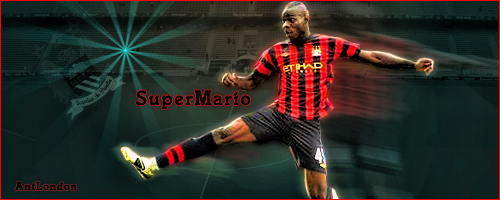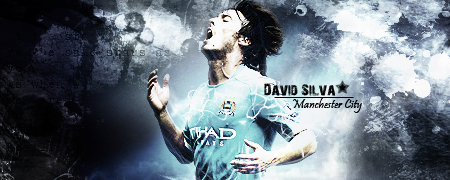What was a young Joey Barton like to work with?
Absolutely excellent. I cannot speak highly enough of Joey Barton
haha......good article though and if I'm not mistaken that pic is Jim at Carrington....recently. Tsk tsk....I suppose he's safe there now that those Taffs have gone eh

Manchester City are giving young footballers the chance to earn the lifestyle of a professional footballer with cityecademy.com – the world's first ever online football coaching academy. Cityecademy.com offers a full range of online coaching videos, featuring City players, to help young talent around the world develop their football skills.
To mark the launch of this initiative, which runs until November 7th, Sport.co.uk caught up with Manchester City's Youth Academy Director Jim Cassell – the man who oversaw the development of Shaun Wright Phillips, Joey Barton, Stephen Ireland, Nedum Onuoha, Daniel Sturridge, Michael Johnson and Micah Richards – to discuss his hugely successful and continuing production line of talent, his experience of working with a young Joey Barton and how he feels about grass roots level coaching copping the blame for England’s World Cup performances…
Whose idea was cityecademy.com?
Well, obviously it was from the marketing section. We’ve got the opportunity now, with our resources, to get into different markets. The original concept was to reproduce in videos on a website some of the practises that we think have been successful in the production of players. Take the game out to more people.
At what kind of age can you say with real confidence that a player’s going to make it?
When he’s played about fifty games in the first team! Realistically, it’s a very difficult one – you always have a feel for different things and everyone has their own view on what they see in a player, just like they do with a person. I always look for something that they were born with and that they’re never going to lose, like a beautiful left foot or something of that nature. If you have a strength then you have a chance of developing it. I always use Geoff Boycott as a good analogy – he was never the best hooker or the most aggressive batsman but he certainly knew how to deflect the ball and he used the pace of the ball to accumulate runs. So it’s just what you look for in individuals and what you know about the makeup of a player that gives you this sort of gut feeling, if you like, about who’s going to go on and make it. It’s very easy to spot a talented player at 6 to 10 years-old but the key is spotting the ones who are going to be successful when they’re 20.
How difficult is it to get it through to the kids that they must more or less devote their lives to football?
I always say to them, “You make yourself.” You make yourself in whatever you do – shortcomings, strengths, etc. What we try and do is create a support system, a vehicle if you like, that enables them to get the best possible guidance and support to enable them to develop as individuals. It’s common sense, if you think about it – if you try to produce a person as well as a performer then you’ve got a much better chance of them staying on the straight and narrow. There are a lot of obstacles in life. It doesn’t matter which profession you choose, the wheels come off at some stage for most people. When a boy joined us at 9 years of age, I used to bring him into the office and I’d say to him, “Look, you now are more important than me or any other member of staff here – we’re here to develop you.” We’ll give him all the help and support and every opportunity but, deep down, it’s up to the person. If you want something badly enough then you’ll get there.
How does it make you feel when you see Manchester City spending all this money on readymade stars from around the world?
I think it’s fantastic. We shouldn’t as a club have any worry about that. The resources aren’t only being used to purchase players – it’s being invested in the infrastructure of the club and some of the facilities now are outstanding. We’ve been able to add to our staff structure in extra support roles that we’ve never had before. If I was a young person, I’d think, “What an opportunity to develop and play.” And naturally, if you progress to the first team, you’ll play with some of the best players in the world.
Does it disappoint you that none of Stephen Ireland, Joey Barton, Daniel Sturridge and Nedum Onuoha are currently at the club? Or are you delighted by the fact that they are all still in the Premier League?
The first objective of anybody working in player development is to produce a career for somebody. I would suspect that the four boys that you’ve just mentioned are very wealthy young men, and quite rightly so because they are very good at the job that they do. In an ideal world, you’d love to have eleven players playing in our first team who stay there for the duration of their careers but that doesn’t seem to happen. The game is changing now and people do move on quicker because there’s a lot of pressure on managers, coaches etc. It’s inevitable now that you’re going to have people changing clubs more often than they did in the past – that’s just something in the game that we all have to accept. With the plusses in any situation, you’re always going to get some minuses. From a selfish point of view, I’d love our boys to have come through the academy, play in the first team for their whole career and retire there but, realistically, that doesn’t happen.
Do you look more internationally for young players now?
No. I still believe that your best players for working with are local because you’ve got greater access to them. The concept of the academy system right throughout the country was to work for longer with local young players, with the hope of developing the game nationally. I don’t think we can deny anybody the freedom of movement now, coming into our game, because the fans want to be entertained by the best players each week. It’s a terrific challenge for young players but it’s one that they shouldn’t be frightened of because, at the end of the day, every single player playing in the Premier League has been young at some stage so they’ve had the same pressures and problems. That’s something that young players should be prepared to accept and take on board because the rewards are fantastic.
How good do you think Dedryck Boyata and Vladimir Weiss can be?
They’re excellent young prospects. They’re different styles of players but what they’ve both proved is that they can play in the top flight. What they probably have to do now, which comes with experience, is prove that they can play there on a more consistent level because many people can play at that level but only the very best can play consistently. So that’s now the next stage for the young players – once they break into the squad, then they’ve got to prove that they can play week in, week out as a squad player. Both of them have done exceptionally well. Vladimir’s had the experience of playing World Cup football, he’s played in the Premiership with Bolton, he’s played in the Premiership with us, he’s played in Europe, he’s now playing on loan at Rangers – he’s had a fantastic opportunity to develop in different systems and environments. Dedryck of course is a year younger than Vladimir and he’s just broken through to our first team – he’s probably played around half a dozen games now and he’s had a real baptism of fire because three of his six games have been against Wayne Rooney and one was against Chelsea [last weekend].
So he’s done exceptionally well to prove himself at that level and what he’s got to do now is work hard at his game, which is something we positively encourage because you shouldn’t be happy just being there.
Dedryck was playing at right-back against Chelsea…
Yep. That’s fantastic because he played in our youth side as a centre-half and, if you can play two positions in a back four, what a string to your bow that is. It’s like having two players in one.
Conversely, Micah Richards is a right-back who has been known to fill in at centre-half. Do you think he’ll get back into the England fold?
I think so. I never put a cap on anybody or anything because I believe that you can achieve whatever you dream of. Micah is an exceptional young boy – he’s probably still only 22 or 23 years of age so he’s still very much learning the game. I think he’s had a good start to the season, unfortunately just picking up an injury which has kept him out of the team, but he’s working hard at what he does and he’s listening to the senior pros. I’ve always had the view that the best coaches are players anyhow because they don’t accept second best in the training programme. Micah’s got a fantastic chance of breaking through – he’s quick, he’s strong, he’s a good defender, he’s getting better and breaking and supporting play, he can get you a goal in the air and his overlapping is improving all the time.
What was a young Joey Barton like to work with?
Absolutely excellent. I cannot speak highly enough of Joey Barton. Joe was a great pro at the club, he worked hard and just loved football. He’d play for nothing just to play at the highest level. He’s had a few problems off the pitch but, when he was with us as a young boy, he was a role model because he would never take no for an answer – he just wanted to be a footballer. The one person that should take great credit out of Joey Barton’s achievements on the pitch is Joey Barton himself. He has been fantastic.
Is it true that Tottenham Hotspur tried to poach you?
Not that I know of. I would only say that I’m very, very happy at Manchester City and I’ve got no intention of moving from where I’m at. I love the club, I’ve been here for thirteen years, I’m a Manchester boy obviously – we’ve got two wonderful clubs in the city and I have the privilege of working for one of them. What more can you ask for if you’re in football?
Do you think it was fair of people to blame England’s World Cup performances on failures at grass roots level?
Totally unfair, in my opinion. Yes, we have to keep looking at the structure of our game, without any doubt, but you’ve seen it a million times – in any tournament, one team comes out of the blue and does well, usually one of the favourites gets to roughly where they should be, and some of the teams who get hyped up for various reasons suffer loss of form of key players, or bad luck. Who knows what would’ve happened if Lampard’s goal had stood against Germany? We don’t know. I wonder, if we’d won the World Cup, whether they’d have said, “Well, that’s down to the academies.” Because, if you look over the last year, our U21s got to the final of the European Championships, our U19s were there and our U17s won it. So you’ve got to say that the structure of the game is producing young players. I don’t think we have a problem producing young players but what we do have a problem with is turning very good young players into top class internationals, and I think that could be down to the pressures they face after they’ve left the academy system.
I wouldn’t apportion blame to the coaches – it’s more than that. We have to constantly keep reviewing the game, we have to keep encouraging youngsters right the way through from school because, without doubt, society has changed and kids don’t play in the street or in the park as much as they did. So we’ve got to go a different route. I may be biased towards it but I think the academy system is excellent and we shouldn’t lose our nerve with it because it’s only ten years old and, if you do go out and watch some of the games, the standard of play is excellent.
Which other academies do you admire? Are there any in particular which you would hold up as a role model?
There’s terrific work going on up and down the country. We’ve done well – in fact, in terms of stats, I think we’re number one – Arsenal obviously have a fantastic record, Chelsea won the youth cup last year, Liverpool produce players, Everton have produced players, Middlesbrough had a wonderful start to the academy system and produced players and West Ham have always done it. Then you look a level down at Sheffield United who’ve done well, you look at Crewe, you look at Huddersfield under Gerry Murphy, and they’ve all produced players pro rata for the market that they can get into for their clubs.
So academies do work, there’s no doubt about that, but the top end is now so focused on the world market that, quite naturally, you’re not going to get as many people breaking through to the very top level. You’re always looking for a seam of talent coming through in any sport at the moment – English cricket was in the doldrums for years but now we’ve produced a seam of fast bowlers who are tall and quick, and the balance of power in world cricket is coming slightly towards us again now, isn’t it? So it’s very much dependant on how you structure the game all the way through if you want to achieve something but academies certainly work and you cannot keep blaming them. Usually, the people who are the biggest critics are the people who don’t know very much about them and haven’t worked for one.
Finally, are there any particularly bright prospects coming through at Manchester City at the moment?
I always have a policy of never naming a name and that’s not to shy away from putting my neck on the block – I just think that it’s unfair to put pressure on an individual and, secondly, if you’re in a team game, I don’t think anyone should think that the staff involved think anyone is higher profile than they are. We’ve got a number of really good players – I think we’ve got a very good U16s squad at the moment and I’ll be very surprised if in the future we don’t see some of them making it through to the Premiership.
















 [/center]
[/center]